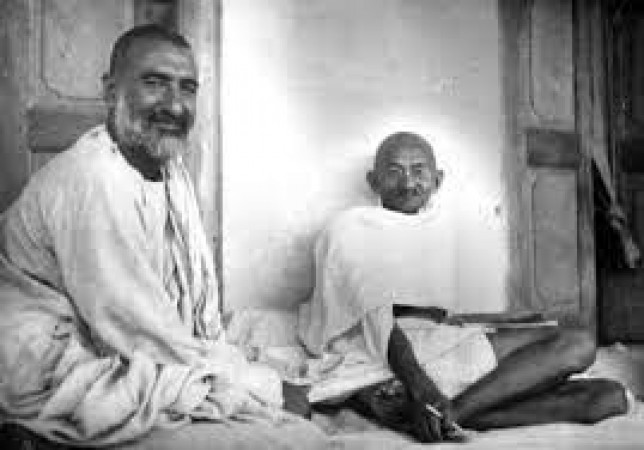
Khan Abdul Ghaffar Khan, also known as "Frontier Gandhi," was a prominent Indian independence activist and one of the leading figures in the nonviolent resistance movement against British rule in the Northwest Frontier Province (now Khyber Pakhtunkhwa, Pakistan). He was a devout Muslim and an ardent follower of Mahatma Gandhi's principles of nonviolent civil disobedience. This article delves into the life and contributions of Khan Abdul Ghaffar Khan, highlighting his significant role in shaping the history of the Indian independence movement.
2. Early Life of Khan Abdul Ghaffar Khan
Khan Abdul Ghaffar Khan was born in 1890 in Utmanzai, a village in the Charsadda district of present-day Pakistan. He belonged to the fiercely independent Pashtun community, which had a rich history of resisting foreign invasions. From an early age, Khan was influenced by his father's teachings, who emphasized the importance of education, social justice, and self-reliance.
3. The Formation of Khilafat Movement
During the early 20th century, the Khilafat Movement emerged in India as a response to the dismantling of the Ottoman Caliphate by the British following World War I. Khan Abdul Ghaffar Khan actively participated in this movement, which sought to protect the rights and dignity of Muslims worldwide.
4. Founding the Khilafat School and Anjuman-e-Islamia
Understanding the importance of education in uplifting his community, Khan founded the Khilafat School in Peshawar in 1910. He also established the Anjuman-e-Islamia, a social and political organization aimed at promoting educational and social reforms among the Pashtuns.
5. Nonviolent Resistance and the Red Shirt Movement
Inspired by Mahatma Gandhi's philosophy of nonviolence, Khan began advocating for peaceful protests and civil disobedience. He organized the Khilafat nonviolent Red Shirt Movement, where thousands of Pashtuns donned red shirts as a symbol of unity and nonviolent resistance against British rule.
6. Clash with the British Authorities
The Red Shirt Movement posed a significant challenge to British colonial rule, leading to clashes between the peaceful protestors and British authorities. Despite facing violence and repression, Khan and his followers remained committed to nonviolence, earning him the title "Frontier Gandhi."
7. The Khilafat Non-Cooperation Movement
Khan Abdul Ghaffar Khan played a pivotal role in Gandhi's non-cooperation movement, urging his fellow Pashtuns to boycott British institutions and products. This mass civil disobedience campaign aimed to exert economic pressure on the colonial administration and demand greater Indian representation in governance.
8. Imprisonment and Hardships
The British authorities, alarmed by the effectiveness of nonviolent resistance, arrested Khan on multiple occasions. He endured long periods of imprisonment and faced immense hardships but remained steadfast in his commitment to the principles of nonviolence and self-determination.
9. Continued Struggle for Independence
Despite facing setbacks and imprisonments, Khan Abdul Ghaffar Khan's dedication to the cause of independence never wavered. He continued to mobilize and inspire his followers, leading to a growing awareness of the power of nonviolent resistance.
10. Legacy of Khan Abdul Ghaffar Khan
Khan Abdul Ghaffar Khan's legacy remains an integral part of India's independence movement. He is celebrated as a symbol of unity, selflessness, and resilience. His contributions earned him the title of "Frontier Gandhi," a name that encapsulates his commitment to nonviolence and his Pashtun heritage.
11. The Impact of Nonviolent Resistance
Khan's approach to nonviolent resistance not only challenged the British Empire's authority but also influenced other independence movements worldwide. His strategies inspired future leaders like Martin Luther King Jr. and Nelson Mandela, who adopted nonviolent methods in their own struggles against oppression.
12. Influence on Future Leaders
The principles and teachings of Khan Abdul Ghaffar Khan continue to resonate with leaders and activists worldwide. His emphasis on unity, education, and nonviolence serves as a guiding light for those seeking peaceful solutions to conflicts and injustice. Khan Abdul Ghaffar Khan's unwavering commitment to nonviolent resistance and his relentless struggle for India's independence make him a towering figure in history. His legacy as the "Frontier Gandhi" serves as a reminder that courage, compassion, and nonviolence can bring about meaningful and lasting change in even the most challenging of circumstances.
UCC: Karnataka CM Accuses Centre of Unnecessary Controversy
A Stunning Adventure in the World of Acting
The Seven Best Vegetarian Bengali Snacks, from Chanar Cutlet to Alur Chop